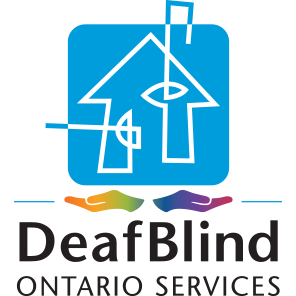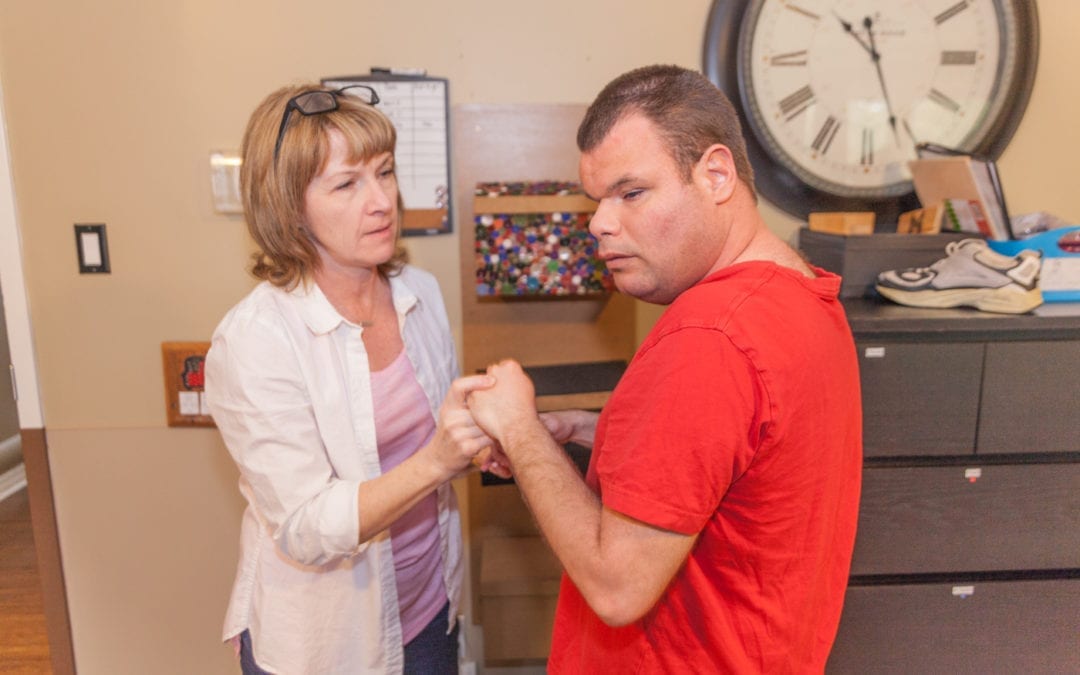For many Canadians, it can be difficult to imagine what it must be like to live with a combined loss of vision and hearing. For Michael, this is the reality.
Deafblindness, a combined loss of hearing and vision, impacts access to information, communication, and mobility. Diagnosed with Congenital Rubella Syndrome (also known as the German measles) just three days after birth, Michael has vision and hearing loss, along with a heart condition.
When Michael was born, his family lived in Quebec. At that time, he was only the second person with deafblindness in the province. There were very limited resources available.
When he was three years old, his family moved to Ontario. “Everything seemed to happen at the right time for us, Michael’s Dad got a job offer in Ontario and we had a lot of hope that we could do much more for Michael. We had visited W. Ross Macdonald School for the Blind and Deafblind when he was nine months old, and we received a lot of valuable information and support,” said his Mother, Margaret Hartley.
Over 1% of Canada’s population or approximately 466,420 people are deafblind, like Michael. In Ontario, an estimated 211,250 individuals are deafblind.
The hope to do more for Michael was answered. The Hartley’s learned about DeafBlind Ontario Services, a not-for-profit organization that provides accessible residential and customized support services from Michael’s physiotherapist. He moved into one of their locations almost 19 years ago.
DeafBlind Ontario Services’ professional intervenors foster independence through a holistic and person-centered approach of “do with, not for”. Individuals with deafblindness build life skills, gain independence and contribute to the greater community with their essential support. “Working as an intervenor gives you the opportunity to be the ‘eyes’ and ‘ears’ for another person; bringing the world a little closer to them,” said Roxanna Spruyt-Rocks, Chief Executive Officer at DeafBlind Ontario Services.
“Thanks to DeafBlind Ontario Services’ intervenors, Michael has grown so much over the years. He has increased independence and makes his own daily choices. A little over a year after he first moved out, he was back home for a visit… A couple days in, Michael brought me his suitcase indicating he was ready to go back to his own home. Although it made me a little sad, I realized this is what we wanted for him; to make his own life,” said Margaret.
“It truly amazes me that DeafBlind Ontario Services finds the most caring and devoted people I have ever met in all levels of the organization”.
People with deafblindness across Canada, like Michael, have inconsistent access to support like Intervenor Services. Each province or territory has a varying degree of funding available to provide specialized services.
“Michael is just one example of the difference that intervenors make for people with deafblindness. Access to Intervenor Services or Support Service Providers is a basic human right, regardless of where the individual lives,” said Roxanna.
Throughout National Deafblind Awareness Month in June, members of the deafblind community are advocating for a level playing field for Intervenor Services across Canada.
National Deafblind Awareness Month was proclaimed by the Canadian Senate five years ago in 2015. It is held in June because it is the birth month of Helen Keller, one of the most internationally recognized people with deafblindness.




Recent Comments